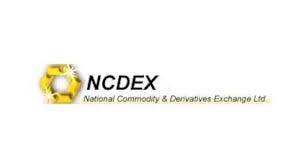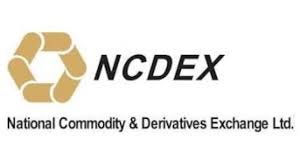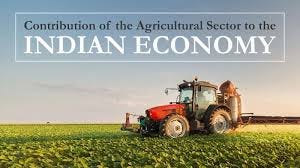Welcome to Finance PREMI!
At Finance PREMI, we strive to bring you insightful and engaging content that adds value to your understanding of the financial world. Today, we dive into the heart of India’s agricultural economy by exploring the role of the National Commodity & Derivatives Exchange (NCDEX) in transforming commodity trading. Whether you are a farmer, investor, or just someone interested in finance, this article is for you!
India’s agricultural backbone has always been a key contributor to its economic growth, and commodities trading has become an important tool for driving efficiency and transparency in the sector. One of the major platforms enabling this transformation is the NCDEX, a leading commodity exchange focused primarily on agricultural commodities.
Understanding NCDEX can unlock new opportunities for traders and investors while offering insights into the future of India’s commodity market. So, let’s dive deep into how NCDEX works and what it means for the financial and agricultural sectors.
What is NCDEX?
The National Commodity & Derivatives Exchange (NCDEX) was established in 2003 as an online, multi-commodity exchange, designed to offer trading in a wide range of agricultural and non-agricultural commodities. NCDEX focuses on improving price discovery and hedging in India’s vast agricultural markets, enabling participants to manage risks more effectively.
The platform plays a crucial role in providing farmers, traders, and processors a transparent marketplace to buy, sell, and hedge commodities like wheat, oilseeds, pulses, and spices. Regulated by the Securities and Exchange Board of India (SEBI), NCDEX ensures fair trading practices and investor protection.
Key Features of NCDEX
1. Futures Contracts for Agricultural Commodities
One of NCDEX's primary offerings is Futures contracts in agricultural commodities. These contracts allow investors to buy or sell a commodity at a predetermined price on a future date. This feature is essential for Price discovery and Hedging, both of which are critical in managing the risks associated with agriculture.
For example, a farmer can sell a wheat futures contract on NCDEX to safeguard against price drops at harvest time, ensuring more predictable earnings.
2. Efficient Price Discovery and Risk Management
NCDEX provides a transparent platform for **price discovery**, allowing farmers and traders to access real-time market prices. This reduces the risk of price fluctuations and makes agriculture markets more predictable.
Risk management is another significant benefit of trading on NCDEX. Market participants can hedge against adverse price movements through futures contracts, protecting themselves from unforeseen losses.
3. Delivery-Based Contracts
Many of NCDEX's contracts are **delivery-based**, meaning that the physical delivery of the commodity happens upon contract expiry. This strengthens the connection between futures prices and the actual commodity market.
For example, a buyer of a soybean futures contract can take physical delivery of soybeans when the contract expires. This feature adds credibility to NCDEX’s trading system and makes it a trusted platform for agricultural processors and exporters.
4. Technology-Driven Platform
NCDEX uses advanced technology to provide a seamless trading experience. Its **online trading platform** offers real-time data, analytics, and user-friendly tools to help traders make well-informed decisions. This tech-driven approach is critical in improving market efficiency and expanding participation.
5. Farmer-Centric Initiatives and Spot Trading
NCDEX has launched various initiatives aimed at **empowering farmers** and improving their access to market-driven tools. Through **farmer producer organizations (FPOs)** and spot trading, the exchange helps farmers engage directly with the market, allowing them to receive fairer prices for their produce.
Why NCDEX is Crucial for India’s Agricultural Economy
India’s agricultural sector is highly susceptible to external factors like weather, pest outbreaks, and government policies. **NCDEX** offers farmers and market participants a platform to hedge against this volatility, ensuring more stable incomes and predictable financial outcomes.
Furthermore, NCDEX fosters financial inclusion, bringing more rural participants into formal financial markets. It reduces the price gap between what farmers receive and what consumers pay by providing **transparent price discovery**. Many local markets use NCDEX futures prices as benchmarks, improving pricing accuracy and fairness.
Challenges and Opportunities
Though NCDEX has successfully modernized commodity trading in India, there are still challenges to overcome:
- Awareness Among Farmers : Many farmers are unaware of how to use futures for risk management. Increased awareness programs are needed to educate them.
- Regulatory Complexities : The trading environment still has some regulatory hurdles, which may limit broader participation.
However, the opportunities far outweigh these challenges. As India's agricultural sector grows, NCDEX’s role in stabilizing markets and enhancing liquidity will continue to be vital.
Key Take Away : A Path Toward Market Efficiency
The National Commodity & Derivatives Exchange (NCDEX) is at the forefront of revolutionizing India’s agricultural commodity market. By offering futures contracts, efficient price discovery, and risk management, NCDEX provides a reliable platform for traders, farmers, and processors alike.
For investors and farmers interested in **stabilizing incomes** and **managing risks**, NCDEX offers tools that can help navigate the often volatile world of agriculture markets.
At Finance PREMI, we are committed to keeping you informed and empowered. Stay tuned for more articles exploring the exciting world of finance!
Disclaimer :
This article is for educational purposes only and does not constitute financial or investment advice. Please consult a certified financial advisor before making any investment decisions.








